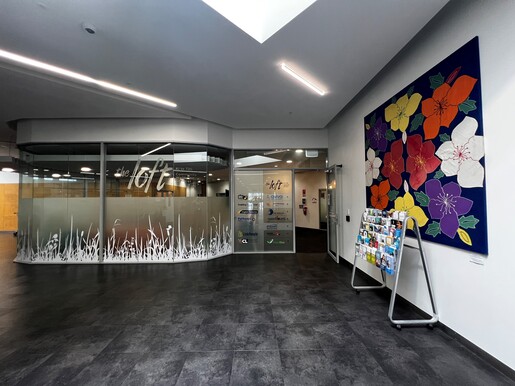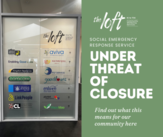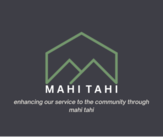A Transparent Look at Our Funding History

Our journey began as an idea following the 2010/2011 Canterbury earthquakes. Many organisations had lost premises but gained a unique opportunity to re-build and re-organise with a renewed focus on the evolving needs of local families and communities. The Loft opened in July 2016 as a purpose built location designed to provide a warm and welcoming place for people seeking support, while also fostering collaboration among co-located agencies to better serve their community. You can learn more about how this environment works here.
Our Social Emergency Response Service (SERS) has seen several variations since its conception and is a testament to resilience and growth. In 2016, The Loft opened its doors with one part time Navigator (known today as “Connector”) and one full time receptionist supported by one full time Manager. The Manager and Receptionist role were partly funded through grants and rental income from tenants, and the Navigator position and all other associated costs were covered through the reserves secured through a huge fundraising effort which facilitated the outfitting, branding, launch and establishment of policies and procedures. Founding agencies generously contributed their time, providing governance and administrative support.
It is worth noting that during our early days, we weren’t an independent entity. Aviva, a founding agency, acted as guarantor until we could achieve full independence. They supported this financially, and gifted significant operational hours.
The Loft opening hours have never changed, so one part time Navigator needed to be covered for the rest of the hours. To ensure continuous service coverage, partner agencies organised a roster to fill the gap from 2pm to 5pm, during breaks, and for annual/sick leave. Agencies that couldn’t contribute through rostered time made financial contributions to support front-of-house operations and services.
While this arrangement may sound like a reasonable compromise, the reality was far more challenging. Rostered individuals already juggled demanding jobs, and asking them to step away from their duties was already a big ask. While highly skilled in their fields, they lacked the specialised knowledge needed for the complex short-term interventions our service managed. Multiple individuals covering shifts led to a lack of continuity of service, varying limitations on assessments and follow-ups, some falling through the cracks due to workload constraints and delayed referrals.
Despite these challenges our service gained recognition, the demand for help grew, and additional support became essential. In 2018, we secured funding from the Tindall Foundation for a full time Family Violence Wayfinder. While the initial year received full funding, subsequent years faced diminishing support with the hope that government funding would eventually sustain the role. In 2019, a part-time administrator joined the team to support the Loft Manager with the growing demands and needs of the organisation.
By the close of 2019, reserve funds were dwindling as operating The Loft was running at a $300K deficit per annum. This is not the first time we have been close to having to close the doors and in March/April of 2020 we applied to government requesting that they fund The Loft’s service, to the equivalent of three full time positions. The Ministry of Social Development (MSD) granted us a three-month lifeline from June to September, allowing us to stay open while they reviewed our application. MSD then offered us funding through the Community Connector contract from 1st October 2020. Initially MSD provided funding for two full time roles, and by the 1st November, we became an independent and fully accredited agency. This funding alleviated the time and financial pressure on our partner agencies, as they no longer had to cover the service gap through the roster system. As needs increased over the following years our contract with MSD increased to three full time positions.
While initial funding from MSD was temporary and tied to Covid-related support, we didn’t limit our assistance to those in isolation and continued to support anyone in need. As our initial contract neared its end, we approached MSD to discuss the future of our partnership, highlighting our essential role in supporting a highly challenged, low socio-economic community.
Our current contract has been discontinued and we are awaiting communication on future funding pathways however we remain in limbo. This shortsighted decision has left us in a situation reminiscent of 2020. Despite exceeding reporting requirements and receiving an independent evaluation which underscored the critical nature of our service.
Since securing dedicated funding for SERS roles, we’ve made tremendous strides. Our Connectors have undergone valuable training to handle complex social and wellbeing issues within the confines of short-term crisis interventions. They possess a deep understanding of the social service system, community resources, and how to make timely and accurate referrals. Their presence ensures familiarity, comfort, and a high level of care, with a deep well of knowledge to draw on. They have become experts in addressing common social issues and understand the unique processes required to handle these situations. When we initally requested funding from government in 2020 we were supporting 250-350 tāngata whai ora a year. With the appropraite funding in place, this has more than doubled, with us now annually supporting 700-1,000 tāngata whai ora.
Our journey has been one of growth and adaptation having evolved into a well oiled machine operating at the peak of our abilities. To maintain the high standard of service, to meet the needs of our community, and ensure that our story continues, we need government funding. Government funding is not just a lifeline; it’s an investment in the wellbeing of our community, ensuring our community receives the support it truly deserves.





